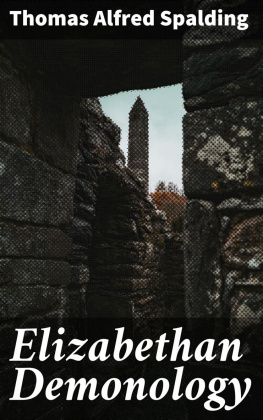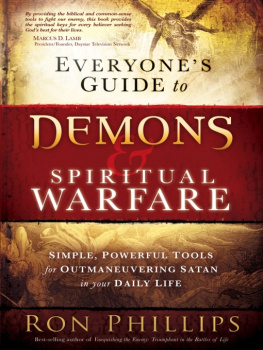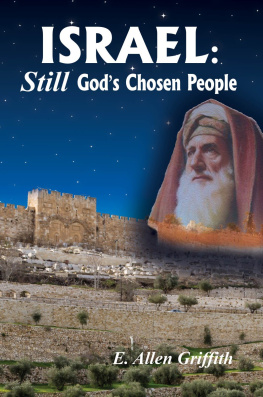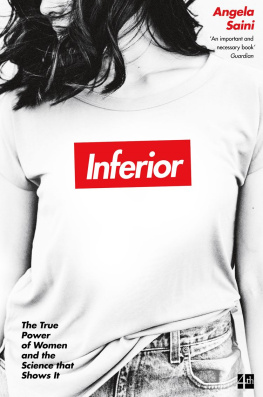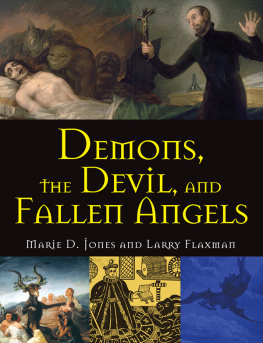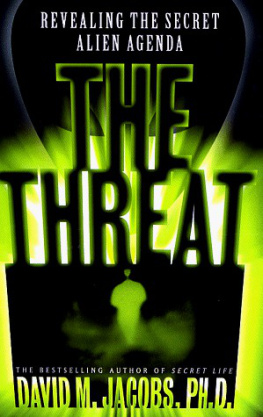This Essay is an expansion, in accordance with a preconceived scheme, oftwo papers, one on "The Witches in Macbeth," and the other on "TheDemonology of Shakspere," which were read before the New ShakspereSociety in the years 1877 and 1878. The Shakspere references in the textare made to the Globe Edition.
The writer's best thanks are due to his friends Mr. F.J. Furnivall andMr. Lauriston E. Shaw, for their kindness in reading the proof sheets,and suggesting emendations.
TEMPLE,
October 7, 1879.
"We are too hasty when we set down our ancestors in the gross for fools for the monstrous inconsistencies (as they seem to us) involved in their creed of witchcraft."C. LAMB.
"But I will say, of Shakspere's works generally, that we have no full impress of him there, even as full as we have of many men. His works are so many windows, through which we see a glimpse of the world that was in him."T. CARLYLE.
ANALYSIS.
Table of Contents
I.
1. Difficulty in understanding our elder writers without a knowledge oftheir language and ideas. 2. Especially in the case of dramatic poets.3. Examples. Hamlet's "assume a virtue." 4. Changes in ideas and lawrelating to marriage. Massinger's "Maid of Honour" as an example. 5.Sponsalia de futuro and Sponsalia de praesenti. Shakspere'smarriage. 6. Student's duty is to get to know the opinions and feelingsof the folk amongst whom his author lived. 7. It will be hard work, buta gain in the end. First, in preventing conceit. 8. Secondly, inpreventing rambling reading. 9. Author's present object to illustratethe dead belief in Demonology, especially as far as it concernsShakspere. He thinks that this may perhaps bring us into closer contactwith Shakspere's soul. 10. Some one objects that Shakspere can speakbetter for himself. Yes, but we must be sure that we understand themedia through which he speaks. 11. Division of subject.
II.
12. Reasons why the empire of the supernatural is so extended amongstsavages. 13. All important affairs of life transacted undersuperintendence of Supreme Powers. 14. What are these Powers? Threeprinciples regarding them. 15. (I.) Incapacity of mankind to acceptmonotheism. The Jews. 16. Roman Catholicism really polytheistic,although believers won't admit it. Virgin Mary. Saints. Angels.Protestantism in the same condition in a less degree. 17. Francis ofAssisi. Gradually made into a god. 18. (II.) Manichaeism. Evil spiritsas inevitable as good. 19. (III.) Tendency to treat the gods of hostilereligions as devils. 20. In the Greek theology. [Greek: daimones].Platonism. 21. Neo-Platonism. Makes the elder gods into daemons. 22.Judaism. Recognizes foreign gods at first. Elohim, but they getdegraded in time. Beelzebub, Belial, etc. 23. Early Christians treatgods of Greece in the same way. St. Paul's view. 24. The Church,however, did not stick to its colours in this respect. Honesty not thebest policy. A policy of compromise. 25. The oracles. Sosthenion and St. Michael. Delphi. St. Gregory's saintliness and magnanimity. Confusion ofpagan gods and Christian saints. 26. Church in North Europe. Thonar,etc., are devils, but Balda gets identified with Christ. 27. Conversionof Britons. Their gods get turned into fairies rather than devils.Deuce. Old Nick. 28. Subsequent evolution of belief. Carlyle's AbbotSampson. Religious formulae of witchcraft. 29. The Reformers andCatholics revive the old accusations. The Reformers only go half-way inscepticism. Calfhill and Martiall. 30. Catholics. Siege of Alkmaar.Unfortunate mistake of a Spanish prisoner. 31. Conditions that tended tovivify the belief during Elizabethan era. 32. The new freedom. Want ofrules of evidence. Arthur Hacket and his madnesses. Sneezing.Cock-crowing. Jackdaw in the House of Commons. Russell and Drake bothmistaken for devils. 33. Credulousness of people. "To make one dansenaked." A parson's proof of transubstantiation. 34. But the Elizabethanshad strong common sense nevertheless. People do wrong if they set themdown as fools. If we had not learned to be wiser than they, we shouldhave to be ashamed of ourselves. We shall learn nothing from them if wedon't try to understand them.
III.
35. The three heads. 36. (I.) Classification of devils. Greater andlesser devils. Good and bad angels. 37. Another classification, notpopular. 38. Names of greater devils. Horribly uncouth. The number ofthem. Shakspere's devils. 39. (II.) Form of devils of the greater. 40.Of the lesser. The horns, goggle eyes, and tail. Scot'scarnal-mindedness. He gets his book burnt, and written against by JamesI. 41. Spenser's idol-devil. 42. Dramatists' satire of popular opinion.43. Favourite form for appearing in when conjured. Devils in Macbeth.44. Powers of devils. 45. Catholic belief in devil's power to createbodies. 46. Reformers deny this, but admit that he deceives people intobelieving that he can do so, either by getting hold of a dead body, andrestoring animation. 47. Or by means of illusion. 48. The common peoplestuck to the Catholic doctrine. Devils appear in likeness of an ordinaryhuman being. 49. Even a living one, which was sometimes awkward. "TheTroublesome Raigne of King John." They like to appear as priests orparsons. The devil quoting Scripture. 50. Other human shapes. 51.Animals. Ariel. 52. Puck. 53. "The Witch of Edmonton." The devil on thestage. Flies. Urban Grandier. Sir M. Hale. 54. Devils as angels. AsChrist. 55. As dead friend. Reformers denied the possibility of ghosts,and said the appearances so called were devils. James I. and hisopinion. 56. The common people believed in the ghosts. BishopPilkington's troubles. 57. The two theories. Illustrated in "JuliusCaesar," "Macbeth." 58. And "Hamlet." 59. This explains an apparentinconsistency in "Hamlet." 60. Possession and obsession. Again theCatholics and Protestants differ. 61. But the common people believe inpossession. 62. Ignorance on the subject of mental disease. Theexorcists. 63. John Cotta on possession. What the "learned physicion"knew. 64. What was manifest to the vulgar view. Will Sommers. "The Devilis an Ass." 65. Harsnet's "Declaration," and "King Lear." 66. TheBabington conspiracy. 67. Weston, alias Edmonds. His exorcisms. Mainy.The basis of Harsnet's statements. 69. The devils in "Lear." 70. Edgarand Mainy. Mainy's loose morals. 71. The devils tempt with knives andhalters. 72. Mainy's seven devils: Pride, Covetousness, Luxury, Envy,Wrath, Gluttony, Sloth. The Nightingale business. 73. Treatment of thepossessed: confinement, flagellation. 74. Dr. Pinch. Nicknames. 75. Othermethods. That of "Elias and Pawle". The holy chair, sack and oil,brimstone. 76. Firing out. 77. Bodily diseases the work of the devil.Bishop Hooper on hygiene. 78. But devils couldn't kill people unlessthey renounced God. 79. Witchcraft. 80. People now-a-days can'tsympathize with the witch persecutors, because they don't believe in thedevil. Satan is a mere theory now. 81. But they believed in him once,and therefore killed people that were suspected of having to do withhim. 82. And we don't sympathize with the persecuted witches, althoughwe make a great fuss about the sufferings of the Reformers. 83. Thewitches in Macbeth. Some take them to be Norns. 84. Gervinus. Hisopinion. 85. Mr. F.G. Fleay. His opinion. 86. Evidence. Simon Forman'snote. 87. Holinshed's account. 88. Criticism. 89. It is said that theappearance and powers of the sisters are not those of witches. 90. It isgoing to be shown that they are. 91. A third piece of criticism. 92.Objections. 93. Contemporary descriptions of witches. Scot, Harsnet.Witches' beards. 94. Have Norns chappy fingers, skinny lips, and beards?95. Powers of witches "looking into the seeds of time." Bessie Roy, howshe looked into them. 96. Meaning of first scene of "Macbeth." 97.Witches power to vanish. Ointments for the purpose. Scot's instance oftheir efficacy. 98. "Weird sisters." 99. Other evidence. 100. WhyShakspere chose witches. Command over elements. 101. Peculiar to Scotchtrials of 159091. 102. Earlier case of Bessie Dunlopa poor, starved,half daft creature. "Thom Reid," and how he tempted her. Her cannyScotch prudence. Poor Bessie gets burnt for all that. 103. Reason forpeculiarity of trials of 1590. James II. comes from Denmark to Scotland.The witches raise a storm at the instigation of the devil. How thetrials were conducted. 104. John Fian. Raising a mist. Toad-omen. Shipsinking. 105. Sieve-sailing. Excitement south of the Border. The"Daemonologie." Statute of James against witchcraft. 106. The origin ofthe incubus and succubus. 107. Mooncalves. 108. Division of opinionamongst Reformers regarding devils. Giordano Bruno. Bullinger's opinionabout Sadducees and Epicures. 109. Emancipation a gradual process.Exorcism in Edward VI.'s Prayer-book. 110. The author hopes he has beenreverent in his treatment of the subject. Any sincere belief entitled torespect. Our pet beliefs may some day appear as dead and ridiculous asthese.

